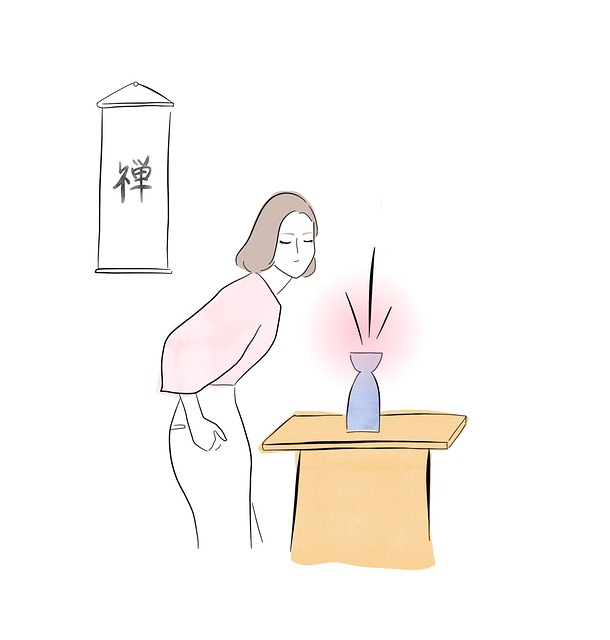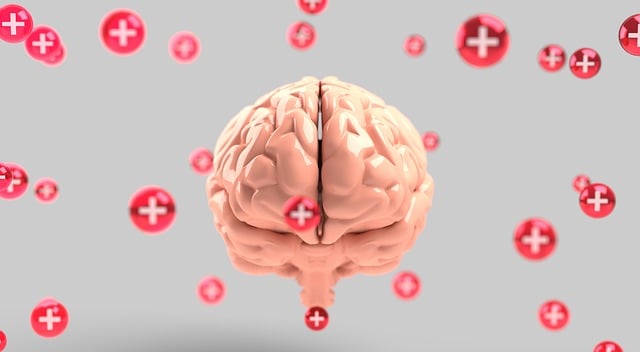Lafayette Interpersonal Issues Therapy (LIIT) emphasizes positive thinking as a powerful tool for personal growth and stress reduction. By identifying and challenging negative thought patterns, individuals learn cognitive restructuring techniques to improve relationships and manage stress effectively. Daily positive thinking exercises, like gratitude and reflection, enhance optimism, resilience, and mood management. Mindfulness and gratitude, key components of LIIT, strengthen bonds and reduce mental illness stigma in interpersonal relationships. Tracking progress through journaling and professional guidance ensures sustained mental health improvements, making LIIT a valuable approach for personal and organizational well-being.
“Unleash the power of positive thinking with this comprehensive guide, drawing insights from Lafayette Interpersonal Issues Therapy. We explore how identifying and challenging negative thought patterns can transform interpersonal relationships. Through practical exercises, learn strategies to cultivate a positive mindset daily, fostering personal growth and enhancing connections. Discover the role of mindfulness and gratitude in building stronger bonds. This article provides tools to measure success and sustain positive changes, offering a roadmap for individuals seeking to embrace a more optimistic and fulfilling life.”
- Understanding Positive Thinking: The Foundation of Lafayette Interpersonal Issues Therapy
- Identifying Negative Thought Patterns: A Key Step in Overcoming Interpersonal Challenges
- Incorporating Daily Positive Thinking Exercises: Practical Strategies for Personal Growth
- The Role of Mindfulness and Gratitude in Enhancing Interpersonal Relationships
- Measuring Success and Sustaining Positive Changes: Tools for Continuous Improvement
Understanding Positive Thinking: The Foundation of Lafayette Interpersonal Issues Therapy

Positive thinking is a cornerstone of Lafayette Interpersonal Issues Therapy (LIIT), which focuses on empowering individuals to cultivate an optimistic mindset as a foundation for personal growth and improved interpersonal relationships. By understanding that our thoughts shape our reality, LIIT helps clients develop inner strength and resilience. This therapeutic approach recognizes the profound impact of positive thinking on mental well-being, encouraging individuals to reframe negative thoughts into constructive ones.
Through various exercises and techniques, this therapy guides people in identifying and challenging self-limiting beliefs, replacing them with positive affirmations, and adopting a more hopeful perspective. Such practices not only enhance overall happiness but also serve as effective stress reduction methods and burnout prevention strategies, particularly relevant for healthcare providers who often face high-stress environments.
Identifying Negative Thought Patterns: A Key Step in Overcoming Interpersonal Challenges

Identifying negative thought patterns is a pivotal step in addressing and overcoming interpersonal challenges. Many people struggle with self-sabotaging thoughts that impact their relationships, leading to misunderstandings, conflicts, or emotional distress. Recognizing these patterns requires introspection and awareness of recurring themes in your internal dialogue. For instance, you might find yourself frequently engaging in all-or-nothing thinking, where situations are viewed as either black or white, success or failure. This cognitive distortion can create a distorted reality, hindering effective communication and understanding with others.
Lafayette Interpersonal Issues Therapy offers valuable tools to help individuals identify and challenge these negative thought patterns. By participating in structured therapy sessions, individuals learn to recognize when their thoughts take on a negative bias. Through techniques such as cognitive restructuring, they can begin to reframe these thoughts, fostering healthier perspectives. This process not only enhances interpersonal interactions but also plays a crucial role in burnout prevention and stress management workshops organized within the organization, ultimately contributing to emotional healing processes.
Incorporating Daily Positive Thinking Exercises: Practical Strategies for Personal Growth

Incorporating daily positive thinking exercises into your routine is a powerful tool for personal growth and well-being. It’s a simple yet effective strategy that can be seamlessly integrated into even the busiest schedules. Start by dedicating just 10–15 minutes each day to practice gratitude, reflection, or affirmations. These practices, often used in Lafayette Interpersonal Issues Therapy, encourage individuals to focus on positive aspects of life, fostering optimism and resilience. By consistently engaging in such exercises, one can improve their overall outlook and mental health, which is a key component of successful conflict resolution techniques.
Mental Health Education Programs Design often emphasize the importance of mood management through cognitive reframing and positive self-talk. Regular practice enhances one’s ability to navigate challenges with a calmer mind. Moreover, these exercises can be tailored to suit individual needs; whether it’s journaling, meditation, or simply taking moments to appreciate little joys, the variety ensures engagement and makes it easier to stick to a consistent routine.
The Role of Mindfulness and Gratitude in Enhancing Interpersonal Relationships

Mindfulness and gratitude are powerful tools that play a significant role in enhancing interpersonal relationships, as recognized by Lafayette Interpersonal Issues Therapy experts. By practicing mindfulness, individuals become more present and attentive during interactions, allowing them to fully engage with others and foster deeper connections. This heightened awareness promotes active listening, empathy, and understanding, which are essential for building strong bonds.
Moreover, incorporating gratitude into interpersonal dynamics can transform the way people perceive and interact with one another. Expressing gratitude strengthens relationships by demonstrating appreciation and fostering a positive environment. It helps to break down barriers and reduce the Mental Illness Stigma Reduction Efforts, creating a supportive atmosphere where individuals feel understood and valued. Effective mood management and risk management planning for mental health professionals can further leverage these practices, ensuring they are integrated into therapeutic interventions to benefit clients’ interpersonal relationships.
Measuring Success and Sustaining Positive Changes: Tools for Continuous Improvement

Measuring success is a vital step in the journey towards positive change. When implementing exercises aimed at improving mental well-being, tracking progress can provide valuable insights. Simple yet effective methods like journaling, where individuals reflect on their thoughts and emotions daily, offer a space to identify patterns and triggers for negative thinking. Over time, this practice enables one to recognize and quantify improvements, be it in managing stress or enhancing overall mood.
For those engaging in Lafayette Interpersonal Issues Therapy or similar interventions, combining self-assessment tools with professional guidance is essential. Healthcare providers can utilize techniques such as Burnout Prevention Strategies for Healthcare Providers to support their clients’ long-term mental health. Regular check-ins and discussions about Burnout Prevention and Depression Prevention can help sustain positive changes, ensuring individuals remain on a path of continuous improvement and better coping mechanisms.
Implementing positive thinking exercises, as outlined by Lafayette Interpersonal Issues Therapy, offers a powerful pathway to personal growth and improved interpersonal relationships. By identifying and challenging negative thought patterns, individuals can foster a more optimistic mindset, leading to enhanced well-being and successful navigation of life’s challenges. Incorporating daily practices such as mindfulness and gratitude not only strengthens personal resilience but also deepens connections with others. Through consistent effort and measurement of progress, one can sustain positive changes, making this approach an effective tool for continuous self-improvement.














